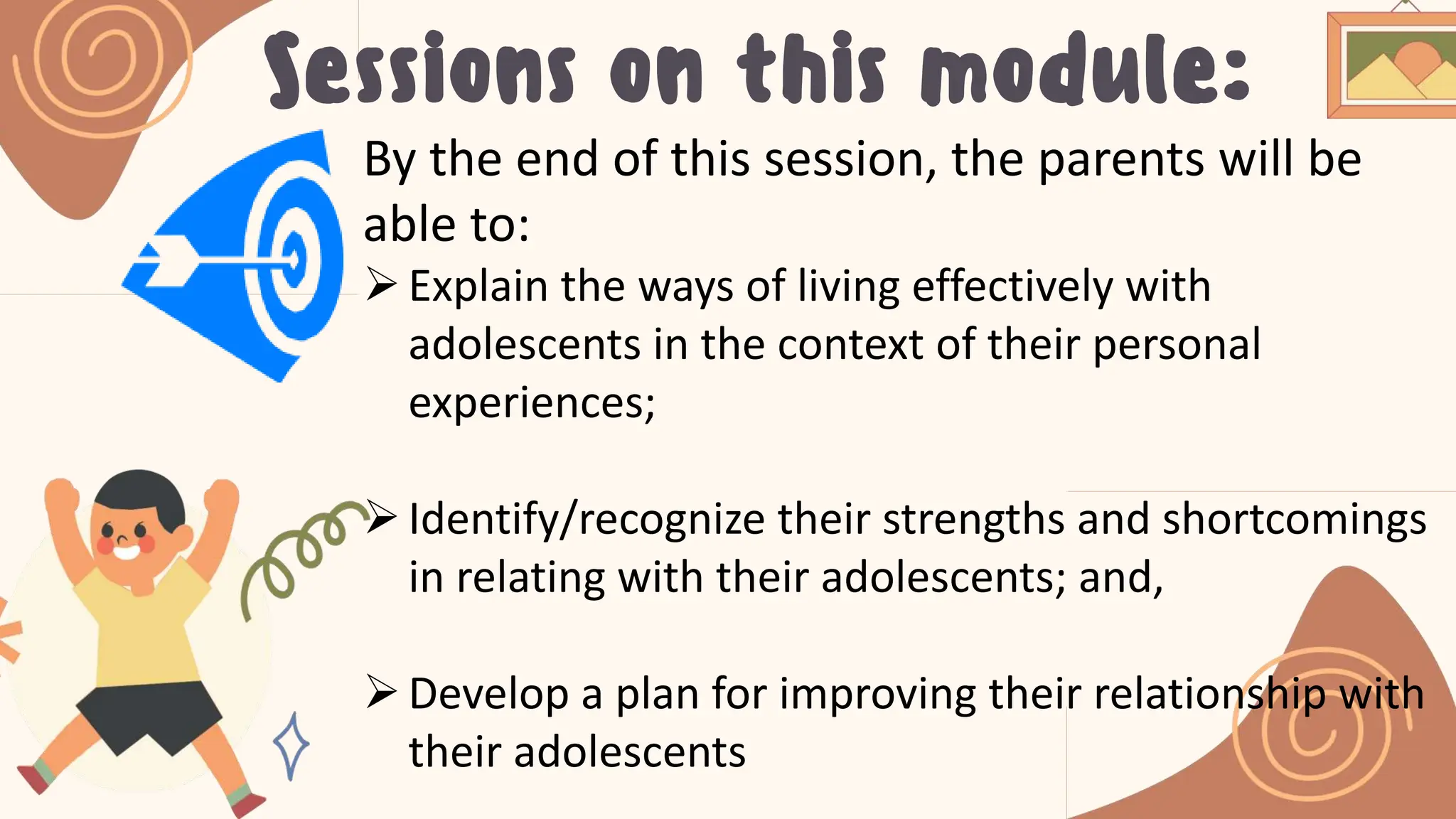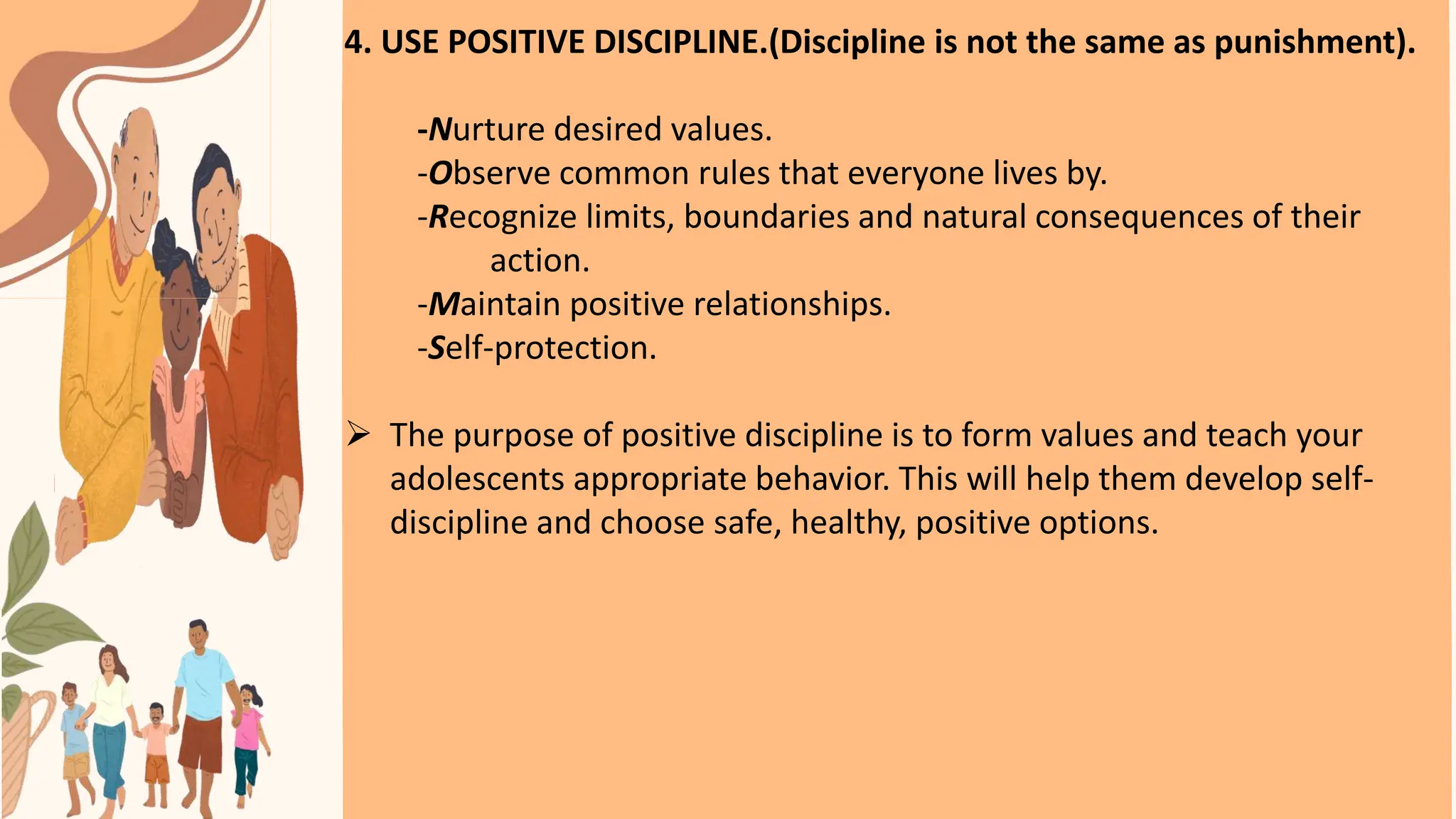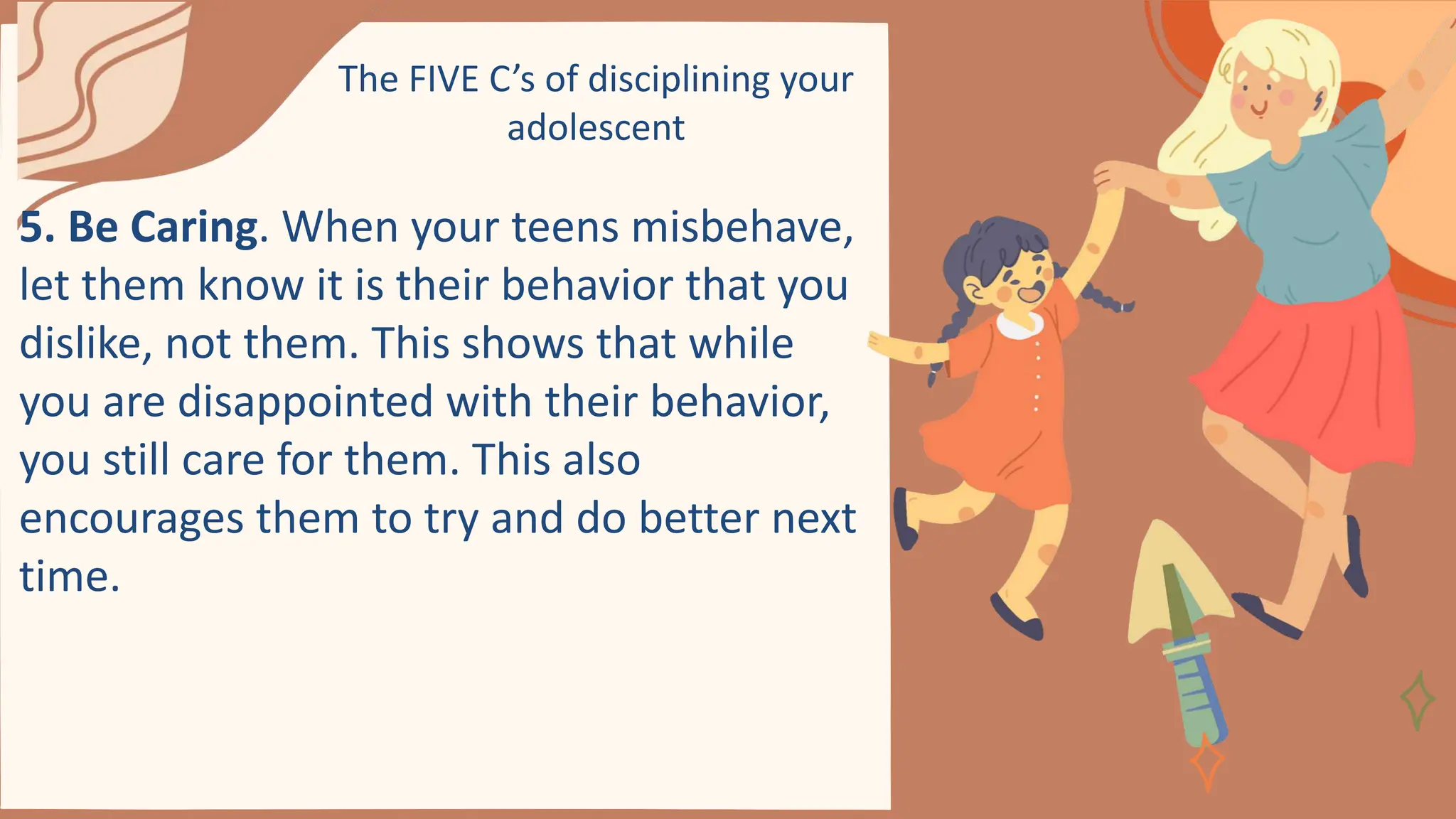The document outlines a session aimed at helping parents improve their relationships with adolescents by understanding and addressing challenges faced during this developmental phase. It emphasizes the importance of quality time, open communication, consistent rules, and positive discipline strategies to foster a supportive environment. The session includes activities and discussions that encourage parents to reflect on their experiences and develop actionable plans for strengthening their familial bonds.























